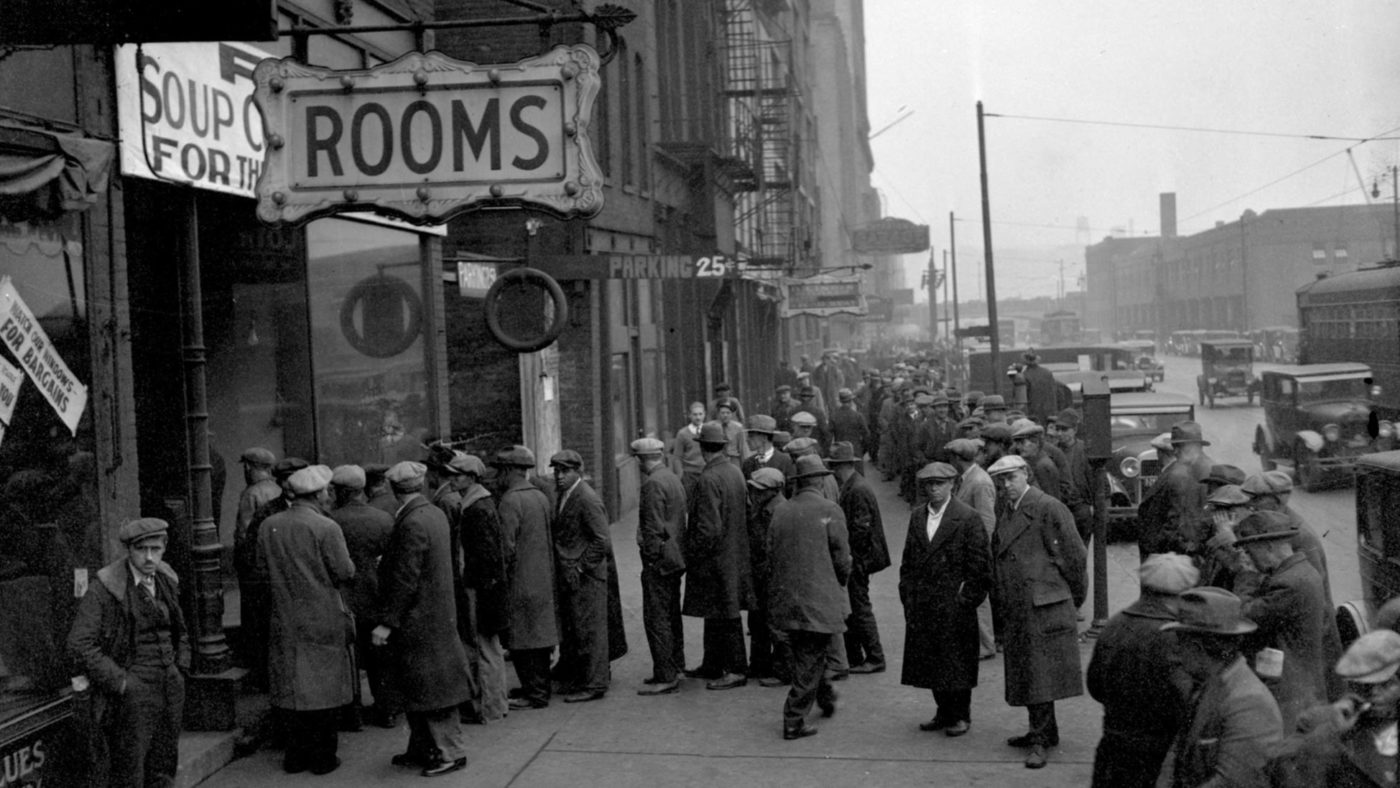Does the economic shockwave of coronavirus mean we are destined for a re-run of the Great Depression, as some are musing it might?
It’s possible, yes, but it really depends what policy levers the politicians try to pull. You can talk about the Wall Street Crash till the cows come home, but what caused the Great Depression was a series of bad political choices, a repeat of which could mean the same outcome.
The most important point to grasp here is that the abiding memories of the privations of the 1930s are not from the UK, but America. Soup kitchens, Okies driving to California, the banking system entirely falling over and the saving of civilisation by a firm expansion of government – that’s all from the American experience.
The British one was entirely different. Our government cut spending and things turned out rather better than that in the US. There are those, and I’m among them, who would argue that the much worse American experience was a direct result of the huge expansion of government. Far from saving the US economy, Roosevelt’s various interventions actually prolonged the agony.
Here’s the thing. The Depression was over in the UK by 1934. The country was, already by then, back to 1929/30 levels of output.As we know the American disaster toiled on rather longer.
So, what were the big differences?
Firstly, the Americans took the decision to allow the banking system to go bust. As Milton Friedman and Anna Schwartz showed in A Monetary History of the United States, this was the single most disastrous decision of the time. There seems little chance contemporary politicians would let the same thing happen now, and more fool them if they did.
While America was expanding the reach of government, the UK cut state spending and put the budget into surplus. At the same time it devalued the pound. This is known as “expansionary austerity” – and it worked pretty well.
FDR boosted the role of the federal government in many ways. One big reform, the arrival of a social security system, was just following what the UK had done in 1911, or what Bismarck had done in Germany much earlier in creating a perfectly reasonable safety net.
Much less reasonable was the National Recovery Administration, which was a disastrous attempt at managing prices. Fair, not fierce, competition, minimum wages by industry, minimum sales prices, the sort of economic controls that would make John McDonnell whimper with pleasure. The legal growth in union power and the imposition of cartels upon both business and agriculture. This suite of ill-advised measures delayed the recovery so much that it’s generally agreed the US economy didn’t get back to where it should be until the War.
As to our current problems. The cause is entirely different, it is not economic in nature in the slightest. In technical terms it is “exogenous”, from entirely outside the economy and nothing to do with any economic structure or policy we have been following. It is not, therefore, a crisis of capitalism any more than it’s a crisis, or endorsement, of socialism or any other -ism. It simply is and is something to be dealt with. The only useful question is, well, what is to be done?
Useful answers including not making the mistakes of the past. Don’t allow the financial system to fall over. Don’t try to fix or raise wages artificially, don’t start to plan and enforce cartels, even if they’re of labour not producers. And yes, once the crisis passes, we will need to cut government spending if only because of all the debt we have accrued dealing with the cursed virus.
One thing to be wary of is leftwingers peddling the idea that the way to forestall or recover from a deep economic crisis is to get the government more involved. The Great Depression, and FDR’s interventionism, is sure to be brought up in service of this argument. Except, as anyone familiar with America’s plight in the 1930s knows, it’s simply not true.
Not only did America take many long years to recover, but other countries that reacted in different ways had far better outcomes. The assumption that the way out of a crisis is for government to expand is not just too far it’s wrong.
There’s also a useful little tell for people pushing an agenda rather than actually considering the options available to us. If all their examples are of the American experience, the New Deal and so on, then they’re either not being open or they don’t know how bad things got in the States. Instead, listen out for the rare souls whose proposals account for the UK’s experience of the 1930s – these might be rather more useful in the months and years to come.
Click here to subscribe to our daily briefing – the best pieces from CapX and across the web.
CapX depends on the generosity of its readers. If you value what we do, please consider making a donation.


